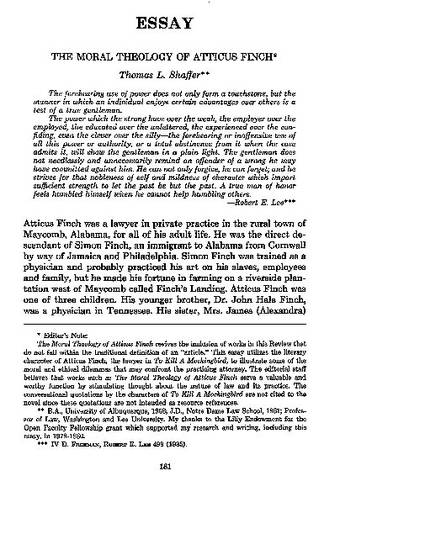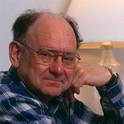
Heroes are identified by the needs of those who choose them. In the case of Atticus Finch, heroism centered on his insistence in telling the truth. In this article, Thomas L. Shaffer explores the idea that this truth was (I) an expression of the person he was and of the community he sought for his children and neighbors; (II) an expression of the virtue of courage and also (and therefore) the expression of a theology; (III) a political act; and (IV) a professional act. As early as 1854, Judge Sharswood (chief justice, law dean and eminent lawyer) could draw a working distinction between what a lawyer had to do and "the high and pure morality which breathes through the Sermon on the Mount." No doubt, by then most American lawyers had begun to practice the distinction in their professional lives; certainly the idea that professional function defines professional morals has long been standard catechism for lawyers and law students in America. The claim that a lawyer must obey his conscience (and that his conscience is one conscience, at home or in town) fades a little more every time the profession recodifies its rules of professional behavior. Atticus was pre-Sharswood; if the Sermon on the Mount meant something to him-as I think it did-it was no less applicable in Judge Taylor's court than it was when he took Jem by the hand and led him to Mrs. Dubose's front porch.”
Available at: http://works.bepress.com/thomas_shaffer/37/

Reprinted with permission of University of Pittsburgh Law Review.